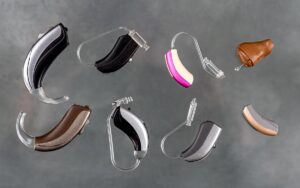When your favorite tune comes on the radio, do you find yourself cranking up the volume? Lots of people do that. When you pump up your music, you can feel it in your gut. And it’s something you can truly take pleasure in. But there’s one thing you should know: there can also be appreciable damage done.
The connection between music and hearing loss is closer than we previously thought. That has a lot to do with volume (both when it comes to sound intensity and the number of listening sessions each day). And many musicians are rethinking how they approach managing the volume of their music.
Musicians And Hearing Loss
It’s a fairly well-known irony that, later in life, classical composer Ludwig van Beethoven was hard of hearing. He couldn’t hear any of the pieces he created (except in his head). On one occasion he even needed to be turned around to see the thunderous applause of his audience because he wasn’t able to hear it.
Beethoven might be the first and most famous example of the deaf musician, but he definitely isn’t the last. In more recent times quite a few musicians who are widely recognized for playing at very loud volumes are coming forth with their stories of hearing loss.
From Neil Diamond to Eric Clapton to will.i.am, the stories all seem amazingly similar. Musicians spend a huge amount of time dealing with crowd noise and loud speakers. Noticeable damage including hearing loss and tinnitus will ultimately be the result.
Not a Musician? Still an Issue
You may think that because you’re not personally a rock star or a musician, this might not apply to you. You don’t have millions of cheering fans screaming at you (usually). And you’re not standing near a wall of amplifiers.
But you do have a couple of earbuds and your favorite playlist. And that can be a real problem. Thanks to the modern features of earbuds, nearly everyone can experience life like a musician, flooded by sound and music at way too high a volume.
This one little thing can now become a substantial issue.
So How Can You Safeguard Your Hearing When Listening to Music?
As with most scenarios admitting that there’s a problem is the first step. People are putting their hearing in peril and need to be made aware of it (particularly more impressionable, younger people). But you also should take some other steps too:
- Download a volume-monitoring app: You might not realize just how loud a rock concert or music venue is. Wherever you are, the volume of your environment can be calculated with one of several free apps that can be downloaded to your smartphone. This will help you monitor what’s dangerous and what’s not.
- Keep your volume in check: If you exceed a safe listening level, your smartphone may alert you. If you value your long-term hearing, you should listen to these warnings.
- Wear earplugs: When you go to a rock concert (or any sort of musical event or show), use earplugs. They won’t really lessen your experience. But your ears will be protected from additional harm. (And don’t think that using hearing protection will make you uncool because it’s what most of your favorite musicians are doing.).
Limit Exposure
In a lot of ways, the math here is quite simple: the more often you put your ears at risk, the more substantial your hearing loss could be later in life. Eric Clapton, for instance, has entirely lost his hearing. He likely wishes he started wearing earplugs a lot sooner.
The best way to lessen your damage, then, is to lessen your exposure. For musicians (and for people who happen to work around live music), that can be tricky. Part of the solution is ear protection.
But keeping the volume at reasonable levels is also a good idea.
[blogcta]





